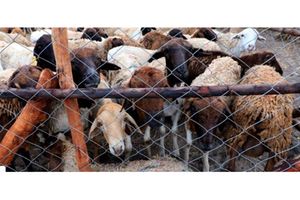Cases of defilement, sodomy increase in Tanzania

What you need to know:
- The demand comes despite the new report showing the general decrease in the Gender Based Violated and Violence against Children
Dar es Salaam. Human rights stakeholders have demanded increased action to contain Violence against Women and Children (VAWC) as cases of defilement increased between 2017 and 2019.
The demand comes despite the new report showing the general decrease in the Gender Based Violated (GBV) and Violence against Children (VAC)
The new development was unveiled during the presentation of report findings by Legal Human Rights Centre (LHRC) at the breakfast meeting prepared by Police Forum.
They were debating on the findings of a report dubbed: the Situation of Human Rights in Tanzania: Elimination of Sexual Violence against Women and Children for 2021.
Tabling the presentation, LHRC senior program officer for research Fundikira Wazambi said statistics show a decrease of GBV incidents from 42,414 in 2020 to 29,373 in 2021, equivalent to 30.8 percent decrease.
According to him, other 2021 statistics indicate that VAC incidents decreased to 11,499 recorded last year from 15,870 in 2020 which is equivalent to 27.5 percent.
He said 44 percent of the incidents of GBV documented in 2021 were recorded in Arusha, Ilala, Tanga, Kinondoni and Rukwa police regions.
“The majority of community members, equivalent to 52 percent, perceive violence against women as a serious problem in their community,” he said.
“Beatings (domestic violence) and verbal abuse/humiliation were cited as the most serious problems by over half of the respondents or about 54 percent,” he added.
Furthermore, Mr Wazambi said rape incidents decreased from 7,263 in 2020 to 6,305 in 2021, equivalent to 13.2 percent of the decrease.
He said sexual harassment was also identified as a common form of violence against women, including female journalists, perceived to be a problem by the majority of survey respondents.
“Rape represents the biggest VAWC threat to Tanzania’s women and girls with police data showing that 5,802 rape incidents were reported in 2015, rising to 7,645 in 2016 before jumping to 8,039 in 2017,” said Mr Wazambi.
According to the report, the number of incidents dropped to 7,617 in 2018, before jumping again to 7,837 in 2019.
For three consecutive years, (2019, 2020 and 2021), the freedom from violence was the second most violated human right above the freedom of expression, right to liberty and personal security and freedom of assembly and association.
He named sexual violence; physical and psychological violence; child labour and exploitation; child trafficking; child marriage; and child pregnancy as the key issues affecting the children’s rights.
“Child defilement increased in three consecutive years from 579 incidents in 2017 to 2,365 in 2018 and 4,397 in 2019,” said Mr Wazambi.
He said over 150 incidents of violence against children were documented by LHRC through human rights monitoring and media survey from January to June 2022, the majority of them involving defilement.
“They include 22 incidents of children being defiled by a ‘Madrassa’ teacher in Arusha Region and a seven-year-old child who was tainted killed in Kilimanjaro Region,” he said.
“A father accused of sexually abusing own children and impregnating one in Ruvuma. Also, basing on witchcraft or superstition beliefs led to a man to defile a six moth baby following the directives of a witch-doctor,” he said.
According to him, the victims of sexual VAC included those as young as three years of age, with the report finding that people close to children to be the major perpetrators of such incidents.
They include family relatives, uncles, stepfathers and fathers, bodaboda drivers and teachers, according to him.
“In extreme cases, one girl (14 years-old) in Katavi was gang-defiled, other three aged five, six and 14 were defiled and killed in Manyara, Mara, and Mbeya regions respectively,” he said.
Mr Wazambi highlighted that boys are also vulnerable to sexual abuse, especially in the form of defilement.
Therefore, he said, the report calls on the government to enact a GBV law to prevent and address domestic violence in line with the international human rights obligations.
“For instance, South Africa and Sierra Leone have Domestic Violence Acts of 1998 and 2007 respectively.
Furthermore, he said the allocated budget for the implementation of the next National Action Plan to end VAWC in the country should be increased.
However, Ms Joselin Josephat from the Women Aid and Criminal Justice (WACJ) said most laws enacted to address the incidents of VAWC have many gaps including failure to criminalise marital rape which is common nowadays.
“The government should amend such laws to plug loopholes providing room for an increase in these incidents,” she said.
According to her, reporting procedures should also be amended to allow the victims of rape to directly report in hospitals in order to protect evidence, hinting that services from other stakeholders should be provided under one roof.
Ms Josephat said police officers should work smartly and ethically and discourage corruption to end cases involving such incidents outside courts.
“The Marriage Act 1971 allowing teen girls marriage should also be amended,” she suggested.
Ms Josephat was supported by Ms Flora Emmanuel from the Tanzania Women’s Lawyers Association (Tawla) as saying that it is high time the Marriage Act of 1971 was amended as ordered by the court in the landmark case of Rebecca Gyumi.
She said the judgement that has made many law students to refer, Ms Gyumi as the Attorney General (AG) wants sections allowing girls below the age of 15 amended.
“Tanzania has amended several laws, leaving the Marriage Act 1971 untouched. The government isn’t ready to amend and support the law, because of what it refers to as endless processes,” she lamented.
“What is disappointing is that after the judgement, the government filed an appeal which is a message that it supports teen girls’ marriage,” she added.
Ms Emmanuel called on the government to support Non-Governmental Organizations (NGOs) and individuals advocating against the vice.
“We should avoid double standards refusing teen marriage, while at the same time appealing to support the same,” she said.
Ms Bahati Mandago, from the Tanzania Yetu Company, said mechanisms for violence reporting should be to provide confidence, protection and confidentiality.
“The victims should no longer be forced to report the issue to multi-stakeholders such as ten cell leaders, LGA leaders, law enforcers for PF3 provision and finally to hospitals for medical examinations,” she suggested.
Ms Faraja Gervas from the Institute of Finance Management (IFM) had a similar idea, observing that providing reporting and services to the victims at One Stop Centre will reduce the present long procedures leading to threats to the victims.
A sociology student from the University of Dar es Salaam (UDSM), Ms Mwante Temba, said local militia (sungusungu) in LGA should be educated in order to efficiently handle different cases related to VAWC.
“Religious leaders and politicians should be trusted to provide education on VAWC,” she said.
The Women and Children Improvement Agency (Wochia) executive director, Ms Gwendoline Charlotte said the government should enact zero tolerance policies on VAWC at the public and private workplaces.
“There should be consequences against people violating the policy that could be extended to unfair comments people are making to the way the women are dressing,” she said.
But, Mr Msafiri Mwajuma Mariam children use of social media should be closely monitored to prevent exposure to pornography sites.
Mr Mariam was supported by Mr Arif Salehmohamed, who said the ignorance of the laws has made people think that violence is limited to sexual harassment, excluding the acts of beating children and spouses.
“Also, we are supposed to properly use the social media in providing advocacy,” he said.
For her part, Ms Sarah Mrosso, from the Mozambique-Tanzania Centre for Foreign Relations (CFR), said parents and guardians accountability in parenting should be maximized.
According to her, activities dedicated to house maids should be limited and strangers should be prevented from sleeping in the children’s rooms.




